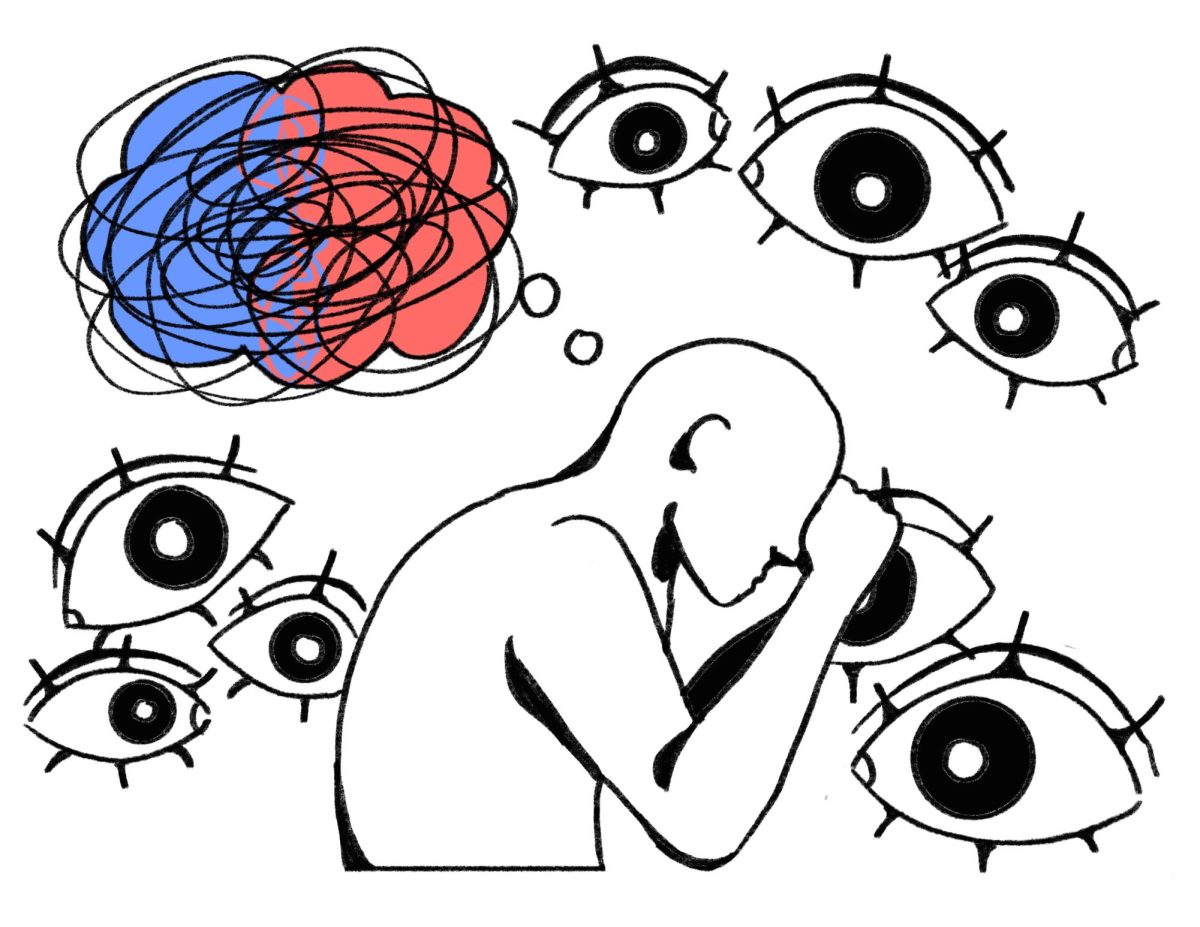Over the past couple of years, the sociopolitical climate has intensified, and our country has become more polarized than ever. A firestorm of chaos and division has continued to spread as the jerrycan of social media pours its combustible contents onto the flames. Every day it seems as if there is a new shocking headline or reason for outrage. In this challenging context, it can be hard not to feel anxious, frustrated, stressed or depressed.
Although students at Lakeside have various types of privilege, both presumed and actual, we do not exist in a bubble. Echoes of conversations around campus indicate that politics are weighing heavily on our minds. These conversations are often reactive, focusing on the latest details of political events — “Hey, did you hear what happened?” — but I have been concerned about the deeper impact the sociopolitical climate is having on our wellbeing. While some might believe otherwise, attending a school like Lakeside doesn’t make us immune from experiencing sociopolitical stress.
Politically-related mental health concerns have increased dramatically among youth in recent years. The American Psychological Association (APA) estimates that around 55% percent of young people view the sociopolitical climate as a major stressor.
Sociopolitical stress “arises in reaction to awareness of, exposure to, and/or involvement in political events,” a 2023 study published in Comprehensive Psychoneuroendocrinology found. Dr. Michele Riba of the University of Michigan notes that the symptoms of politically-induced stress may include sleep disturbances, abrupt changes in mood, anxiety, and increased substance use. Similarly, the APA found that people experiencing sociopolitical stress are at risk of sleep loss, shortened temper, and obsessions.
Research also suggests that those with marginalized identities experience elevated levels of distress and anxiety related to political issues compared to non-marginalized identities. Specifically, a study found that college-age cisgender women, transgender people, and nonbinary individuals were more than four times as likely to report sociopolitical stress than cisgender men. Members of the LGBTQ+ community were over 20 times as likely to experience sociopolitical stress. The Spring 2022 Harvard Youth Poll also found that 59% of Black youth, 43% of AAPI youth, and 37% of Latino youth feel “under attack” in the current sociopolitical climate.
The symptoms of this type of stress can also manifest in ways that are unique to each of us and our identities. Within my family, for example, the impact of the current political climate is most noticeable on weekday mornings. Throughout the first two weeks following the election, my family witnessed more drivers than usual being pulled over by police in our predominantly white neighborhood. All these drivers were either Latino or Black. Since then, an anxiety-filled tension has made its way to the center of our morning routine as we, a Black multiracial family, rush to our car with the intention of driving very slowly and decreasing our chances of interacting with the police.
Sharing her own experiences of angst related to the sociopolitical milieu, GLOW leader Sophie W. ’27 stated, “It does make me pretty anxious … All of us are being attacked in some way or another.” Sophie also reflected on how the intensity of today’s political polarization can exacerbate stress by inhibiting connection. “Politics are so important in people’s lives now,” she explained. “There are so many things we can disagree on that are just so important to us … it feels hard to connect with people who have wildly different ideals than you do.”
Ana S.M. ’27 also shared some of her thoughts regarding the impact of the sociopolitical climate, describing “a growing sense of, almost, helplessness … of a loss of control … it’s hard to stay grounded.” She added that social media can contribute to these emotions, noting that the other users of the platforms are “just as anxious and overwhelmed as you.”
Amidst the fear, division, and instability, it can feel nearly impossible to mitigate the impact of the sociopolitical tumult on our mental health. However, we can address this daunting issue both individually and as a community.
On an individual level, Lakeside counselor Damon Buren emphasized that it is important to be mindful of how we focus our attention. “There’s a tendency for a lot of social media and media to promote fear-based content,” he said. “I think watching the media tends to drive up a lot of stress.” Taking from his insights along with recent psychological research findings, it is crucial to set time limits on our daily news consumption and avoid the endless stream of outrage on social media.
Mr. Damon recommended “focusing in on what you can control.” He specified, “That could mean connecting with what’s important to you, your values, and maybe there’s something you can do related to that within your community.”
While shifting our focus is key, it can be difficult to hold onto this intention in the storm. The same identities that influence our experience of sociopolitical stress can often make us feel that we need to constantly be aware of what’s happening and that it may even be irresponsible to turn away. Trying to navigate all of this while protecting our mental health is not easy.
And that is why we, as a community, need to talk. We need each other.
This is not a time for us to just push through and handle it all individually. We must instead come together, risk vulnerability, and discuss the impact of this political climate on our collective psychology. “I want people to be emotionally open,” Ana reflected.
After all, as overwhelming as the current sociopolitical environment can seem, none of us are alone. We can support one another and lean on our community. In Sophie’s words, it is important “to know that even though the world outside may seem to be crumbling, we still have each other.”

